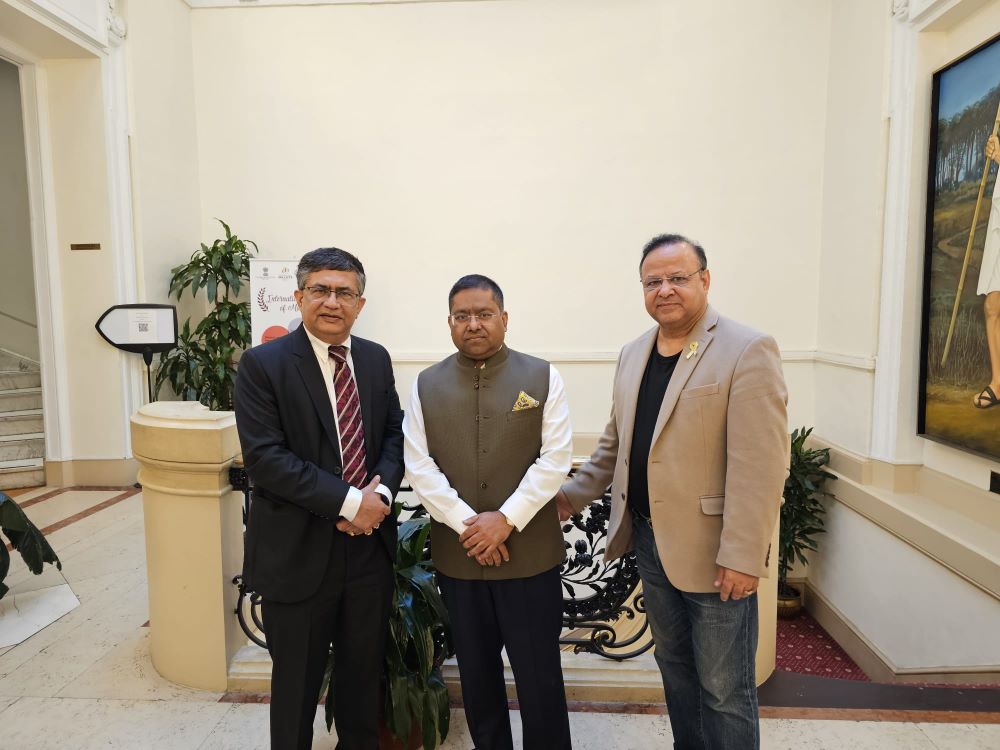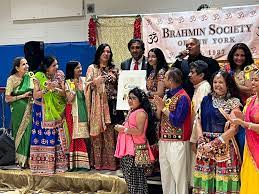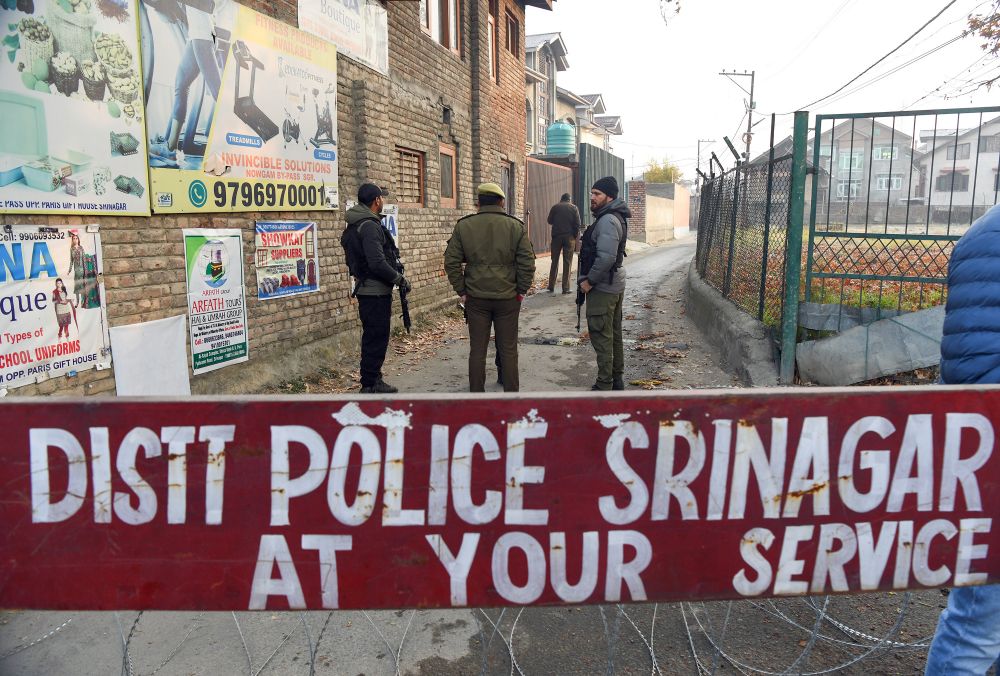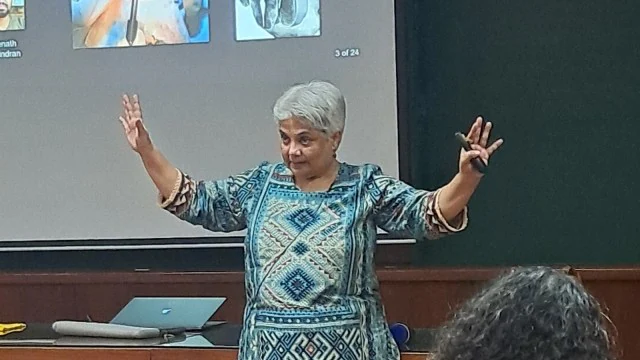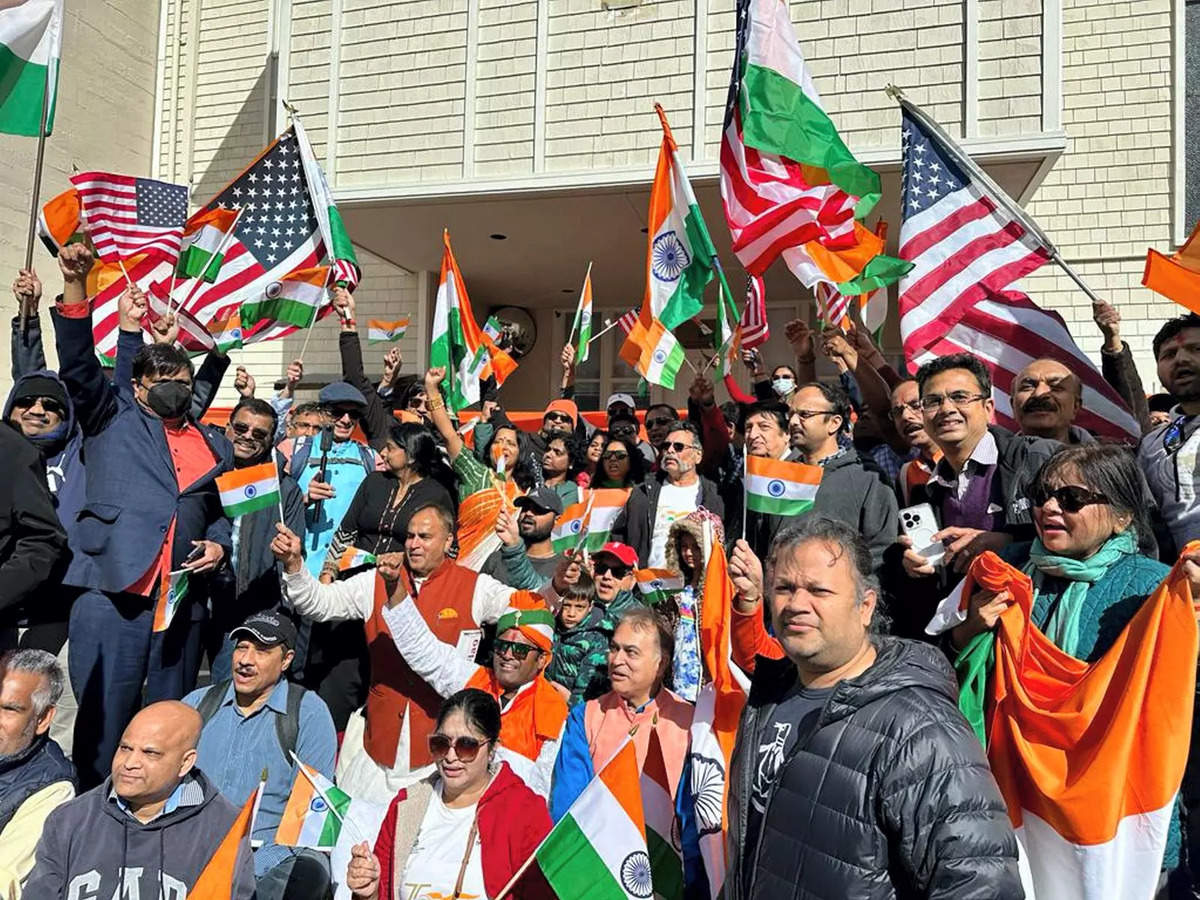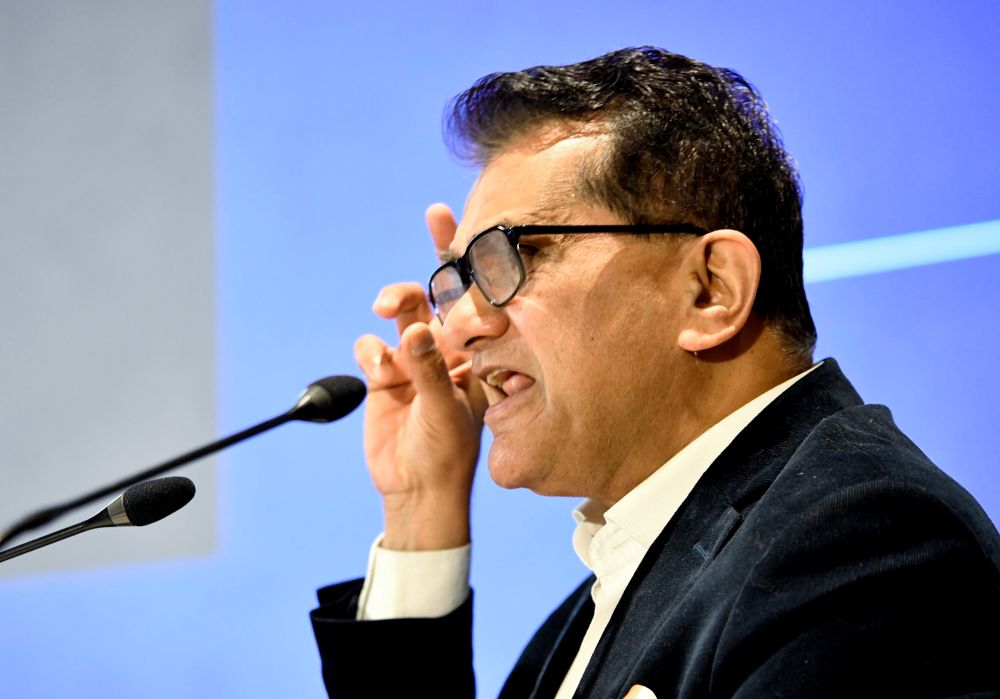India is on the most-anticipated and awaited way to become the 3rd largest economy in the world. One man who has been contributing significantly is Ashish Chauhan, MD and CEO of National Stock Exchange of India and honorary chancellor of Allahabad University. Recently, he interacted with Sunil Hali, promoter and publisher of the Indian Eye group, Worldwide Media & Entertainment Group in a live session for Radio Zindagi Network. Chauhan was a guiding light who shone through the pandemic when every institution was struggling. The only index that was going up in India was the stock market index. In this enlightening and lively chat, Chauhan describes in detail his inspiring story from a village in Gujarat to IIT-Bombay to working for Reliance, the largest corporate group in India, and finally leading the NSE. Excerpts from the insightful and motivating interaction about hard work, knowledge, and a will to make way ahead.
Tell us about your early childhood and how you made way to the top institutions of India, even after coming from the vernacular medium. What were the challenges?
I was born to highly-educated parents. My mother was a gold medallist in economics in the 1960s and a working woman since then. My father was an engineer. I was born and studied in Bavla, 30 km from Ahmedabad. I studied in a Gujarati-medium school till class 12th and then got admission to IIT Bombay. As the medium of instruction was English, it was very tough but I could complete the course within the specified time of 4 years. I joined IIM Calcutta to do my MBA. To my surprise, when I gave exams for higher studies, I was also in the top few engineering students. I thought I will do better in management because I started organizing events during my IIT days. I was one of the main organizers of Mood Indigo, which is the largest sports festival in India.
I joined IDBI and during the Harshad Mehta scandal, it was told to set up a new exchange. NSE was established which was the first automated trading exchange in the world. Even New York Stock Exchange was phone-based at the time. India without much money or automation became harbinger of things to come by setting up this nationwide exchange using a satellite telecom network. I was the youngest member of the team. So, I had to do a lot of work including instruction in satellite communications, design to buying of equipment and doing screen designs for trading algorithm designs for matching and finally clearing settlements.
Within 1 year, NSE became larger than the Bombay Stock Exchange which was the oldest exchange in Asia. This was the original fintech in the early 90s, when few Indians had not even heard of computers. We were actually trading nationwide. This was the first success in financial markets with complete automation.
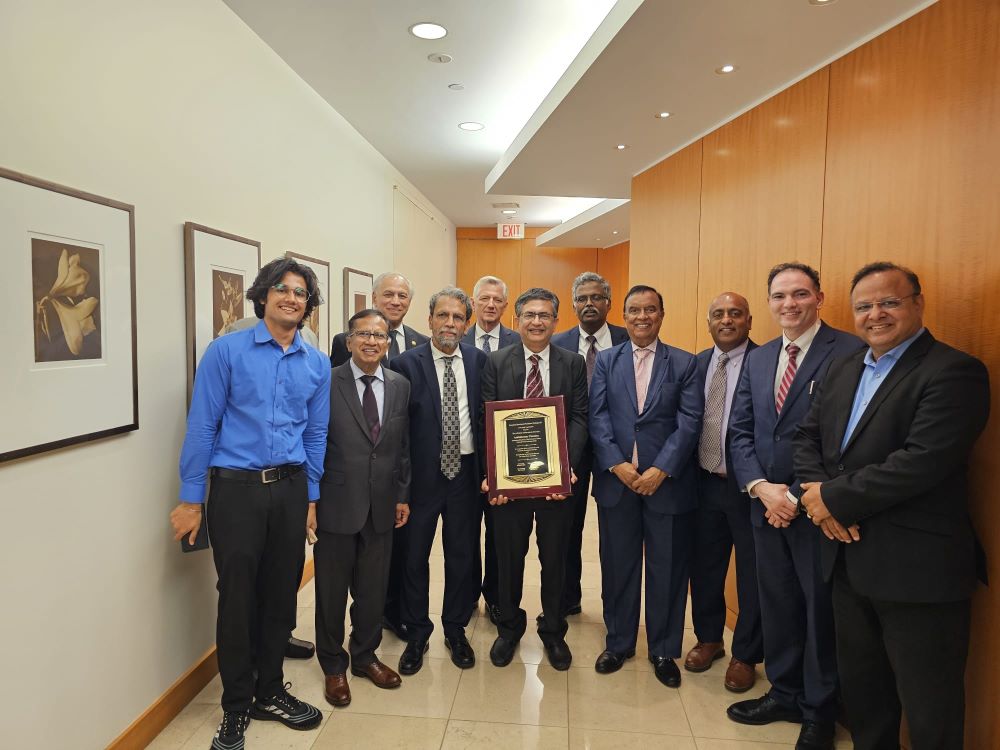
We fellow IITians, if you agree or disagree, called you the fintech guru in India. While the computers had not entered India, you were engineering these solutions on how to implement it here in a better way, at such a young age. Please tell us more about it.
The world was just trying to use computers. They were mainframe computers, and only used for kind of free batch activities like on university campuses. They were very large and the programming the way we know it now, was not that prevalent. India was then a poor country in terms of the capital available. There were many sanctions against India by the Western block. India was sending many satellites for weather forecast, etc. I was not well-versed in English but I worked hard to learn it by reading through a lot of manuals and books to enhance my understanding. In my 4th year of IIT, new computers were available to help in doing real-time activities.
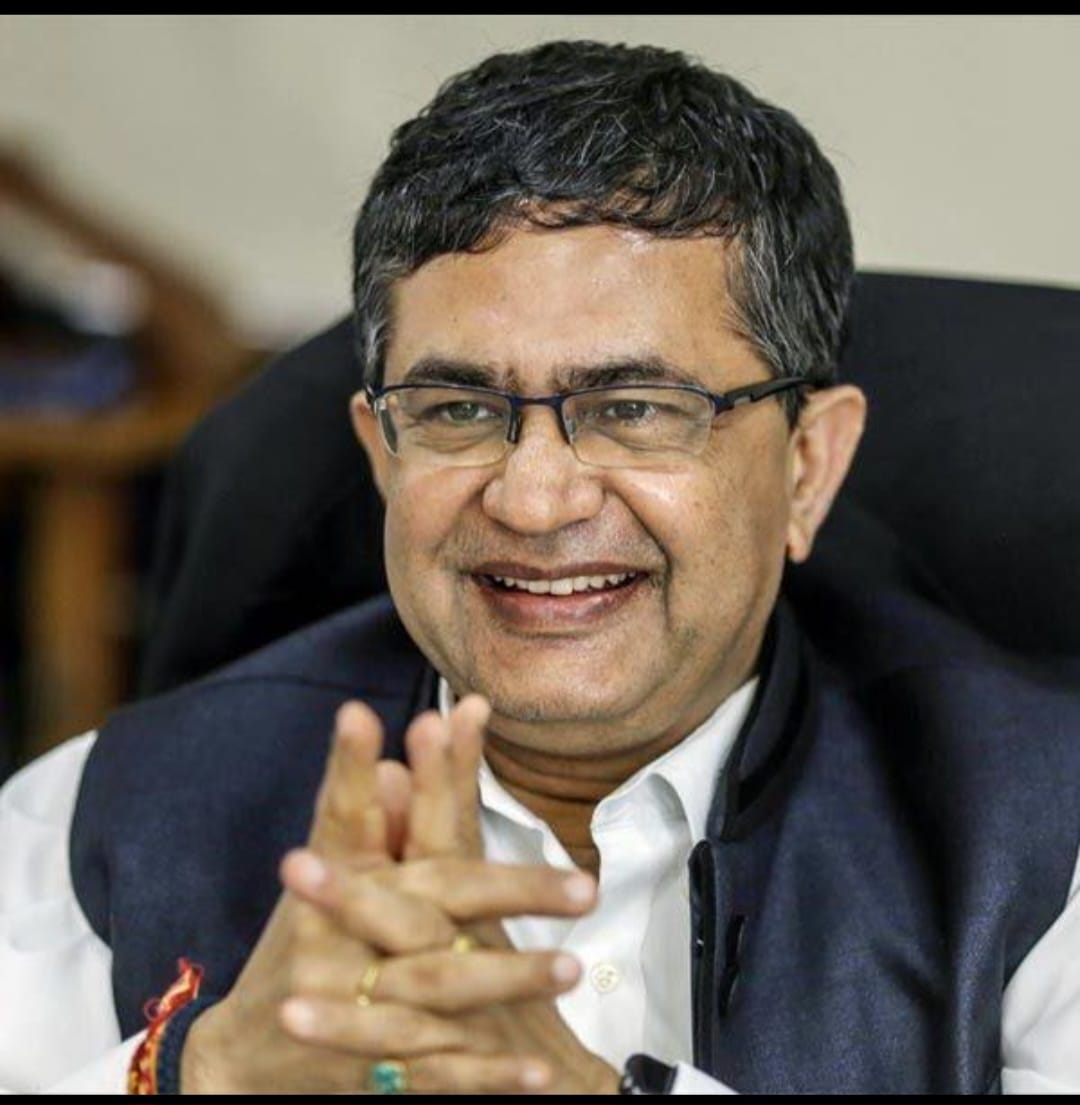
You joined the largest business corporate House in India, the Reliance group, and worked with Mukesh Ambani. Tell us about your experience.
My brother and sister were in the US. They were telling me to migrate there so I applied for assignments. However, I started my own company called Exchange Next.com which was basically a B2B e-commerce for every type of industry in India providing matching engines financing, logistics, and other things. It was a 100 people company but when the e-commerce bubble busted, the funding dried up. It was at that time, Reliance told me that we are setting up a new telecom company and you can work with us as an employee along with your entire team. Mr Ambani told me to clean up their billing process. I could do that since I had done a lot of business processes before. Later on, when the group split and I was made the chief information officer (CIO) of the Reliance Industries group. They also told me to handle the public relations of the group. I was also leading the Mumbai Indians as its CEO.
You are also the honorary chancellor of the prestigious Allahabad University. Please tell us about that.
I have been associated with many education policies of the government. Allahabad University has been called the Oxford of the East. It has been the producer of many top minds of the country including leaders, bureaucrats, and entrepreneurs. However, due to the increased political atmosphere in the University, there was a downfall. Now, we are upgrading it again. We are trying to get funding from the alumni to improve the infrastructure and appoint more faculty. The number of students is rising. We have also created Centres of Excellence. The idea is to turn around this place which has carved its special place in history to an even better place of significance in the future.
You are still in your early 50s and already have this huge accomplishment of setting up GIFT Nifty in Gujarat, which has been done very successfully. Tell us how this was made possible.
Singapore is a trading hub. An ecosystem has been created where people from across the world are trading on the Singapore exchange platform. Around 2007-08, Mr Modi who was the then chief minister of Gujarat visualised a similar centre as Singapore international financial services centre in Gandhinagar. He had given it the name of GIFT and that’s how it has been known as the gift city. In 2013, we met at the Bombay Stock Exchange and requested to set up an exchange. We had a meeting for the launch of SGX Nifty and GIFT Connect.
GIFT index is a touch-free zone. It’s a Special Economic Zone created by India where basically way to work in a system work create a system between 2 different countries Singapore and India and giftings basically a attach free zone outside of Indian normal jurisdiction know income tax applies for companies outside even companies within the city, don’t have to pay taxes. There is no GST, no commodity subtraction taxes, and stamp duty is also not there. Since last 1 year, we have ensured that whenever you are in the world, when you place an order on the Singapore Nifty index that order will come to the GIFT exchange. People were very apprehensive because first time in the world, between two countries, such a setup was done. People thought this may not work but it has been a very positive experience till now with smooth operations. In the last week of July, we started having $12 billion trading.
So now international traders are connecting to the GIFT city via the Singapore exchange. It’s a unique system created between the two countries, wherein a unique system is created and you can trade either on GIFT exchange or Singapore exchange, and its completely transparent. Risk management also happens seamlessly. Fortunately, things have been going on smoothly because of the push from the Prime Minister’s office even cooperation from all the regulators in India and the Government of Singapore.
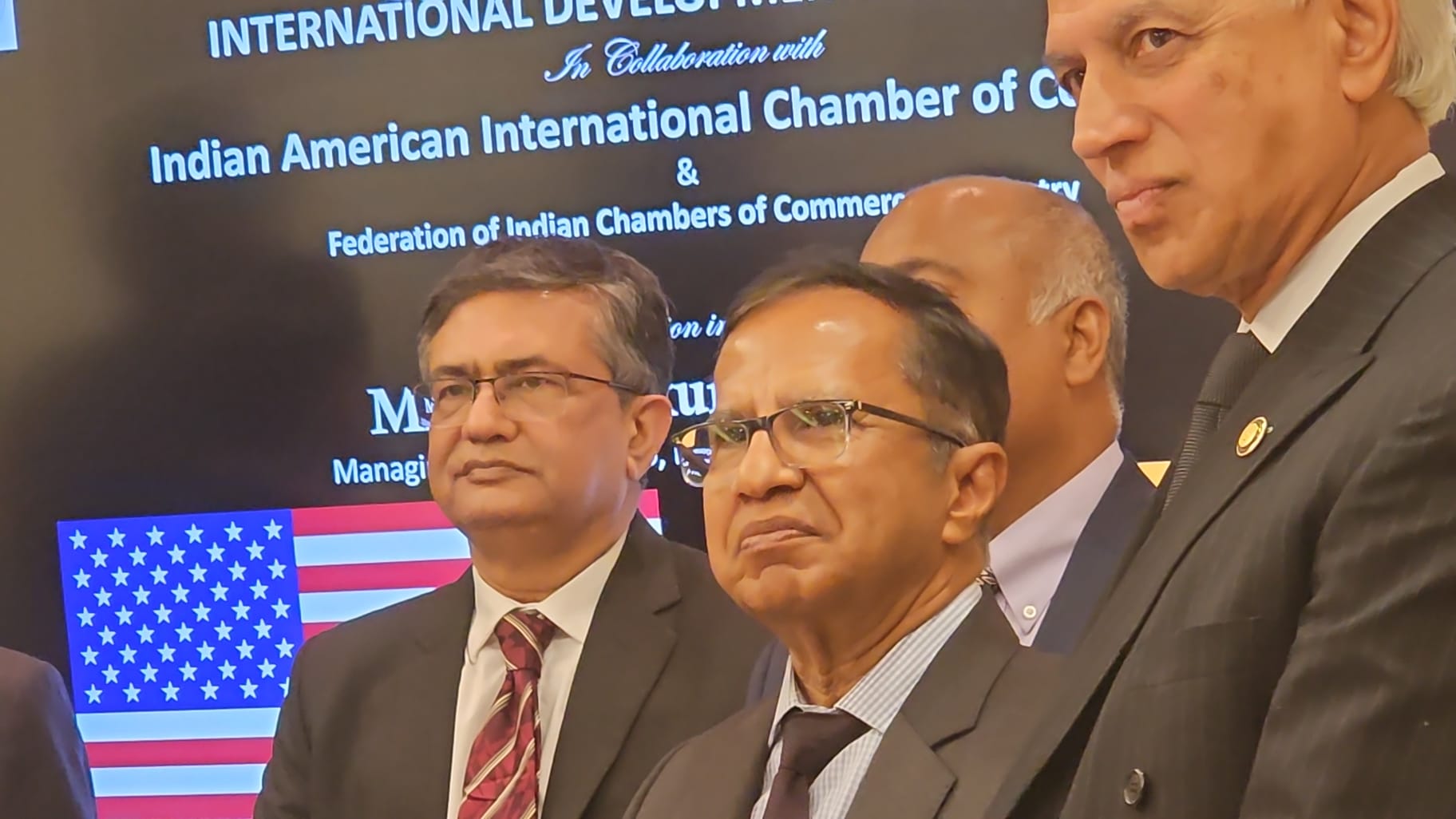
Before we call it a day, I would like to know from you about your contribution in making India the 3rd largest economy, which is the vision of the Prime Minister of India. How do you see it happening?
Destiny has been designed for India to rise now with all the parameters in place. Since the last 1,000 years, India has been at the receiving end. For the first time now, we are a very techno-savvy country. We have leapfrogged many technology cycles, being a fully on mobile hi-tech country. The amazing miracle of technology is being adopted by India in the fastest possible way. The second thing which works is our demographics and which creates wealth is that we have a huge young population of around 30 years.
In the next 50 years, more wealth will be created than has been done in the last 10,000 years. Next 50 years are going to be tremendously important for the world in terms of wealth creation using cloud adoption, AI, big data, robotics as well as defense and genetic modification. Every Indian is thinking in their own unique way. Today to create wealth, we need little wealth (capital) and loads of brains.
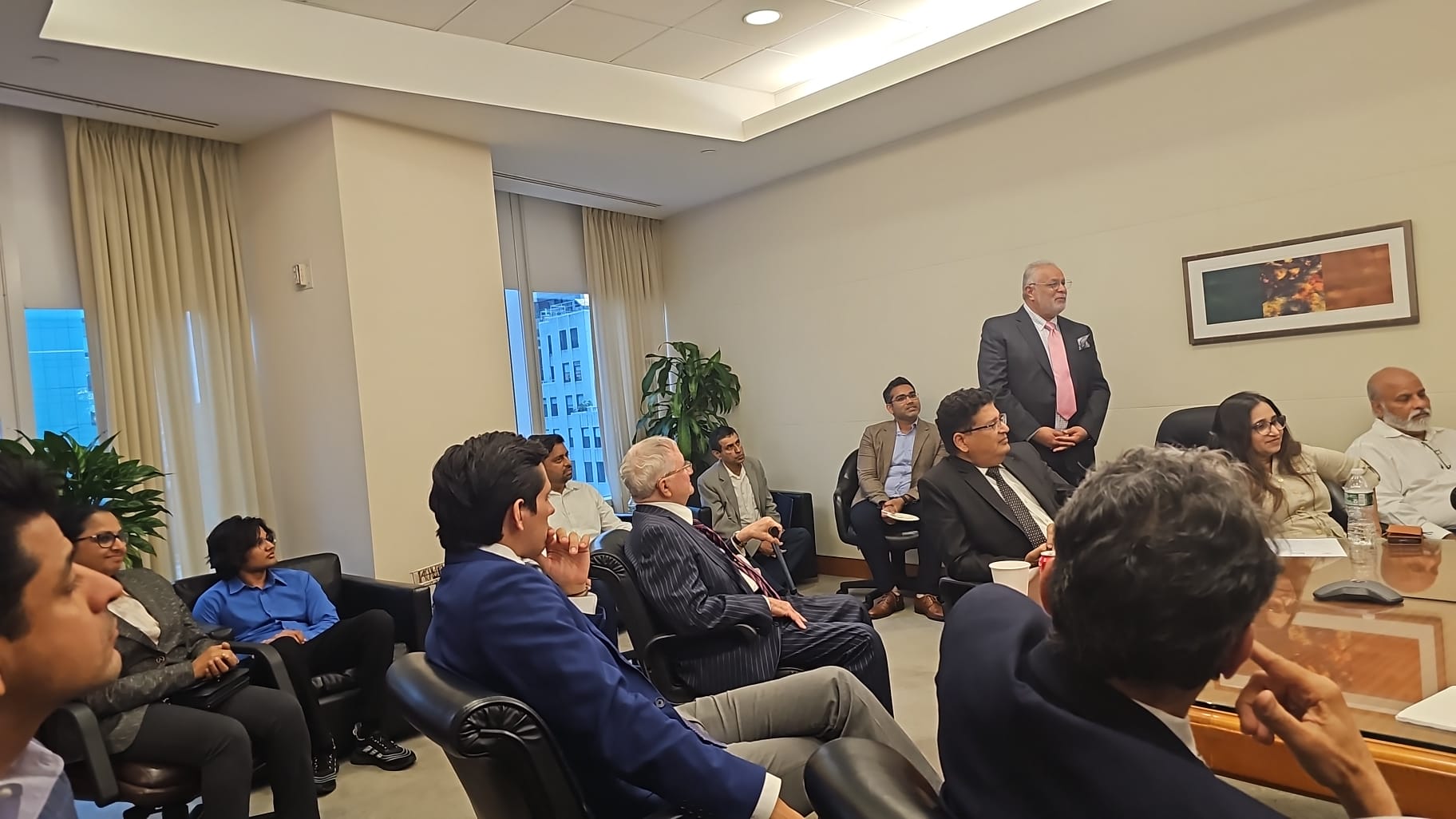
Every day thousands of companies are being born. There are angel investors and funding platforms. However, money can be raised through markets as well. Today we are the 4th largest stock exchange in the world with $3.6 trillion in wealth created. We are the services capital of the world. Every year we need to create 15 million jobs. We are getting to manufacturing as well in a big way. The future lies ahead.
















